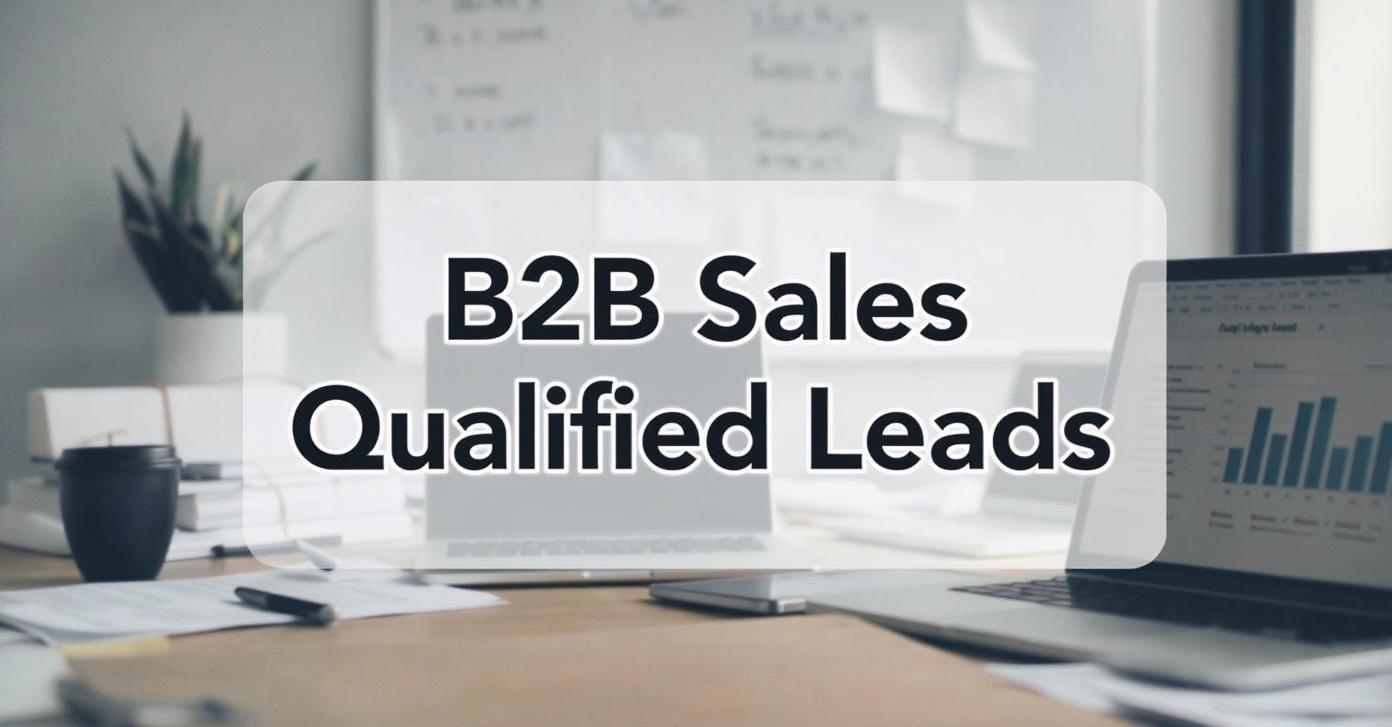In the dynamic world of B2B marketing, the ability to consistently generate high-quality leads is essential for sustained growth. The key lies in focusing on B2B Sales Qualified Leads, which are prospects ready to engage with your sales team and convert into paying customers. Companies that implement strategic approaches to identify and nurture SQLs experience improved conversion rates, accelerated sales cycles, and higher ROI. Acceligize emphasizes that developing a repeatable system for SQL generation is critical for business scalability and long-term success.
Understanding B2B Sales Qualified Leads
B2B Sales Qualified Leads (SQLs) differ from other lead types because they demonstrate a readiness to make a purchase. Unlike Marketing Qualified Leads (MQLs), SQLs have shown intent through specific behaviors such as demo requests, repeated website engagement, or content downloads. They also meet predefined criteria including role relevance, budget authority, and decision-making power. Identifying SQLs ensures that sales teams focus their efforts on prospects most likely to convert, optimizing both time and resources.
The Importance of High-Quality Leads
Generating high-quality SQLs allows companies to prioritize leads that have a higher probability of closing. This not only improves sales efficiency but also strengthens marketing ROI. By focusing on qualified leads, businesses reduce wasted effort, shorten sales cycles, and improve conversion rates. Organizations that implement effective SQL strategies see measurable improvements in revenue performance and overall business growth.
Aligning Marketing and Sales Teams
Effective SQL generation requires strong alignment between marketing and sales teams. Marketing must clearly define the criteria that make a lead sales-ready, while sales teams provide feedback on lead quality. This collaboration ensures that leads delivered to sales are actionable and ready for engagement. Acceligize reports that organizations with aligned teams experience higher conversion rates, faster deal closures, and improved customer retention.
Lead Qualification Framework
A structured lead qualification framework is crucial for identifying SQLs consistently. Key components include:
-
Demographic Fit: Company size, industry, and decision-maker roles.
-
Behavioral Signals: Content downloads, webinar participation, demo requests.
-
Intent Indicators: Engagement frequency and expressed interest in solutions.
This framework allows companies to focus on high-value prospects, ensuring efficient use of marketing and sales resources.
Lead Scoring for Effective Prioritization
Lead scoring assigns numerical values to prospect behaviors and attributes, enabling businesses to rank leads based on conversion likelihood. SQLs reach a threshold score that signals readiness for sales engagement. This data-driven approach ensures that sales teams engage with prospects most likely to convert, while marketing optimizes campaigns to generate high-value leads.
Multichannel Lead Generation Strategies
Acceligize recommends leveraging multiple channels to generate SQLs. A combination of email marketing, social media campaigns, webinars, content syndication, and retargeting ads increases visibility and engagement. Multichannel strategies provide multiple touchpoints, ensuring that leads receive consistent messaging and remain engaged throughout the buyer journey.
Personalization and Targeted Messaging
Personalization is essential for engaging SQLs effectively. Decision-makers expect communication tailored to their specific industry, role, and challenges. Personalized campaigns, relevant content, and targeted follow-ups build trust and increase engagement. Resources such as case studies, ROI calculators, and demo presentations demonstrate value and move leads closer to a purchase decision.
Content Strategy for SQL Generation
High-quality content is key to attracting and nurturing SQLs. Informative whitepapers, industry reports, video testimonials, and product comparisons establish credibility and position your company as a thought leader. By delivering valuable content at each stage of the buyer journey, businesses educate prospects, build trust, and accelerate their path to conversion.
Understanding the Buyer’s Journey
SQLs are typically in the evaluation or decision stage of the buyer’s journey. They have identified a problem, researched potential solutions, and are ready to engage with a vendor. Understanding this journey enables marketing and sales teams to deliver relevant content and communications, increasing the likelihood of conversion.
Technology and Automation in Lead Generation
Modern technology enhances SQL generation and management. CRM systems, AI-driven lead scoring, and predictive analytics allow companies to segment leads, track engagement, and identify high-potential prospects. Automation tools streamline follow-ups, email campaigns, and data enrichment, freeing sales teams to focus on building relationships and closing deals.
Data Accuracy and Lead Hygiene
Maintaining clean and accurate data is crucial for generating SQLs. Outdated or incorrect information can lead to wasted effort and missed opportunities. Regularly cleansing and enriching lead databases ensures that prospects meet SQL criteria and remain actionable.
Continuous Nurturing and Engagement
Some leads may not be ready to purchase immediately. Continuous nurturing through personalized emails, educational content, and targeted campaigns keeps your brand top-of-mind until prospects are ready to convert. Automated nurturing workflows ensure consistent communication without overwhelming leads.
Measuring and Optimizing Lead Performance
Tracking metrics such as lead-to-customer conversion rate, average deal size, and sales cycle duration provides insights into SQL strategy effectiveness. By analyzing these metrics, businesses can refine lead qualification criteria, improve campaign performance, and enhance overall conversion rates.
Predictive Analytics for Smarter Targeting
Predictive analytics helps identify patterns in past SQL behavior to forecast which leads are most likely to convert. By leveraging historical data, companies can prioritize high-value prospects, optimize resource allocation, and maximize the ROI of lead generation initiatives.
Integrating Account-Based Marketing
Combining SQL strategies with account-based marketing (ABM) enhances lead generation. ABM focuses on high-value accounts and delivers personalized campaigns to key decision-makers. Integrating ABM with SQL identification ensures that marketing and sales teams focus on accounts with the greatest potential, driving faster conversions and higher revenue.
Partnering with Experts
Working with agencies like Acceligize ensures effective SQL generation. Their expertise in content marketing, demand generation, and data-driven campaigns helps organizations attract, nurture, and convert high-quality leads. Partnering with professionals accelerates results and builds a sustainable pipeline of SQLs.
Building a Scalable Growth Engine
High-quality SQLs form the foundation of a scalable growth engine. When marketing, sales, and technology work together, businesses can consistently generate actionable leads, convert prospects into loyal customers, and achieve predictable revenue growth. This integrated approach maximizes efficiency, strengthens brand authority, and drives long-term success.
Read Full Article : https://acceligize.com/featured-blogs/understanding-b2b-sales-qualified-leads-for-better-growth/
About Us : Acceligize is a global B2B demand generation and technology marketing company helping brands connect with qualified audiences through data-driven strategies. Founded in 2016, it delivers end-to-end lead generation, content syndication, and account-based marketing solutions powered by technology, creativity, and compliance.


